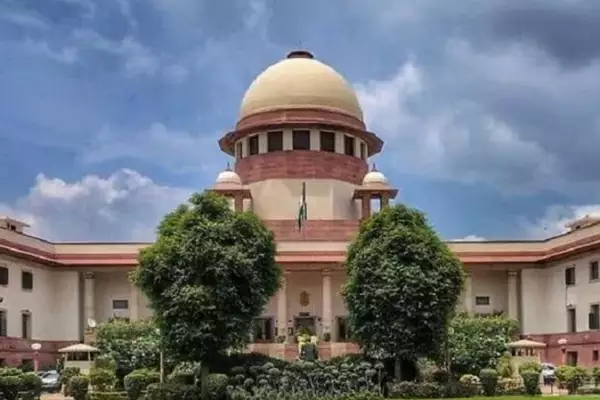In a recent judgment, the Supreme Court highlighted the role of Collegium in Judges’ elevation must be done collectively by the High Court Collegium.
- It emphasized that the High Court Chief Justice cannot individually reconsider recommendations for judge appointments.
About Collegium System in India:
- The collegium system is a mechanism for recommending the appointment and transfer of judges within India’s judicial system.
- Unlike many aspects of the Indian legal framework, the collegium system is not explicitly detailed in the Constitution but has evolved through a series of Supreme Court judgments.
- The system’s primary function is to ensure the independence of the judiciary by involving senior judges in the selection process.
Composition:
- Supreme Court Collegium: This body is composed of the Chief Justice of India (CJI) and the four other senior-most judges of the Supreme Court.
- High Court Collegium: This collegium includes the Chief Justice of the respective High Court and the two senior-most judges of that High Court.
Role and Function
- The collegium is responsible for recommending appointments and transfers of judges to the Supreme Court and High Courts.
- The government has the right to object to the collegium’s recommendations. However, if the collegium reiterates its recommendation, the government is obliged to appoint the judges.
Judicial Interpretation
- The collegium system was established through the Supreme Court’s judgments in the Second Judges Case (1993) and the Third Judges Case (1998).
- These cases addressed the need for a more structured method to ensure judicial appointments are made impartially.
- Although the collegium system is not constitutionally enshrined, it has been upheld by the Supreme Court as the preferred mechanism for judicial appointments.
- The court has also rejected pleas to review its decision on the system, reaffirming its role in the appointment process.
Judicial Review
- Judicial review is the power of the judiciary to examine the constitutional validity of legislative actions and executive orders, ensuring they comply with the Constitution.
- The Supreme Court clarified that the content of the consultation process is beyond judicial review, the effectiveness of the consultation process is subject to judicial scrutiny.
- This means that while the court will not delve into the reasons for recommendations, it can ensure that the consultation was conducted properly and collectively.
- The High Court Chief Justice cannot individually reconsider recommendations for judge appointments, such reconsideration must be done collectively by the High Court Collegium.
- This ruling underscore the importance of collective decision-making within the collegium system to maintain procedural integrity.
Significance of Collegium System:
- The collegium system emphasizes collective decision-making to safeguard judicial independence and ensure a broad-based review of potential candidates.
- The government is required to appoint judges if the collegium reiterates its recommendations after an objection.
- The system aims to prevent undue influence from the executive branch and ensure that appointments are based on merit and seniority.
- While transparency is crucial for accountability, the system also requires a balance with confidentiality to protect sensitive information regarding judicial appointments.
Ref: Source
| UPSC IAS Preparation Resources | |
| Current Affairs Analysis | Topperspedia |
| GS Shots | Simply Explained |
| Daily Flash Cards | Daily Quiz |
Frequently Asked Question:
What is the Collegium System?
The Collegium System is a mechanism used for the appointment and transfer of judges within India’s judicial system.
How did the Collegium System originate in India?
It was established through the Second Judges Case (1993) and the Third Judges Case (1998) to ensure a more structured and impartial method of judicial appointments.
What is the composition of the Supreme Court Collegium?
The Supreme Court Collegium is composed of the Chief Justice of India (CJI) and the four senior-most judges of the Supreme Court.
What is the composition of the High Court Collegium?
The High Court Collegium includes the Chief Justice of the respective High Court and the two senior-most judges of that High Court.


